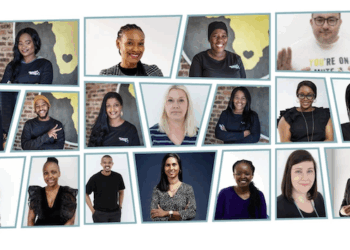Thomas Friedman, the New York Times columnist and winner of the Pulitzer Prize, described his view of the post-2000 globalisation process in his book, ‘The World is Flat’: “Globalisation 3.0 – the thing that gives it its unique character – is individuals and small groups globalising. Individuals must, and can, now ask: where do I fit into the global competition and opportunities of the day, and how can I, on my own, collaborate with others globally?”
Most notable about Friedman’s comments is that they came in 2005, years before the mainstream adoption of social media, which has since become of one the most influential catalysts in globalisation. Instead of one-way messaging that moves from brands to individuals, consumers are free to interact, give feedback and start dialogues with companies from anywhere in the world.
This new business opportunity presents some challenges. Brands must consider how to interact with customers in new markets on their preferred social media channels. Since consumers can now talk about brands directly through online channels, social media content needs to be localised and culturally relevant to generate engagement.
Generally, localisation has been a big trend for businesses and there’s no sign it will stop anytime soon. Forbes predicted last year that national brands with multiple locations would continue to go local in terms of culture, language and standards. Social media is one highly effective, low-cost channel that can be used to interact with customers in these new markets, but only with the right approach.
Here are three steps brands can take as they bring social media campaigns to a flatter world.
1. Stay online and on-message
About 2.4 billion people around the world use the internet regularly. In a global population of more than 7 billion, that’s about one in every three people. About half of those 2.4 billion internet users also sign into a social network regularly.
In general, social media users expect brands to be more responsive and personal on social platforms than through websites and other channels. A tweet or Facebook post may be written in vernacular language or allude to a news story specific to that country, for example. Either way, social media messages in a local market need to be culturally relevant to resonate with today’s consumers.
2. Consider the medium
Even as social media has bridged physical distances, usage habits vary across different regions. To leave an impact in a new target market, brands must consider how users in target markets consume content through social media.
There’s value in conducting some preliminary research about which platforms an audience prefers. Germans don’t like using Twitter, for example. And not only do Brazilians make up the vast majority of Orkut users, they also use Facebook, Twitter and YouTube at a rate only topped by US users. The Chinese aren’t able to access Facebook, Twitter and Google because of government restrictions, so some of the most popular social networks there are Pengyou and Qzone.
About one-quarter of all Facebook users check their account five or more times per day. These are the types of factors brands must consider when choosing a medium of delivery through social media.
Some attention must also be paid to the type of content being delivered. The French, for example, prefer blog content, but perhaps another country’s social media users might be more visually inclined. The way in which a message is packaged is just as important as the channel through which it is delivered.
3. Assess whether geo-targeting misses the mark
Facebook, Twitter and LinkedIn offer brands built-in localisation functions so that they can refine viewership parameters and tailor posts based on the location of a particular audience. It’s this type of geo-targeting that helps brands segment audiences and deliver more relevant content.
Brands can also create new social media channels targeting country- or language-specific audience segments. Coca-Cola has done this well. The business operates a global Twitter feed alongside other country-specific ones (such as the accounts for Great Britain and Spain). By building localised channels, Coca-Cola can provide a much more intimate experience for customers. The company’s social media efforts, along with its country-specific websites, as with Coca Cola China, show how localised a company can get when it comes to branding.
A more personal touch
Social media is all about having engaging, two-way conversations with customers. As brands expand to new markets, that conversation can only continue if a localisation strategy is in place. Should a company create a separate social media account or just occasionally post localised content? Is it worth it to build a newly designed digital property or simply translate the existing website?
These are the questions that companies need to ask in order to succeed in a flattened, globalised world. More than 70% of consumers say they prefer to buy online in their native language. Visitors to brands’ websites and social media channels are unlikely to become customers if they read copy from a brand that has been poorly translated. They’ll think the company didn’t care enough about them to properly polish the message.
Although the idea of globalisation may imply that brands can adopt a one-size-fits-all solution to their marketing efforts, the opposite is true. Globalisation has actually made localisation more important than ever before. Cultural and linguistic nuances matter, wherever and however a brand’s message is distributed.
Françoise Henderson is CEO at Rubric . Follow Rubric on Twitter @rubricinc














